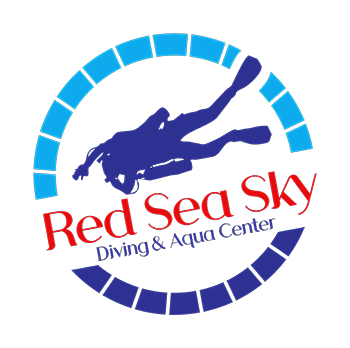Introductory Dive In Hurghada
Price & Duration
The Trip is 1 Day. The price is 50€.
What's Included
- Food and beverages on board: Lunch, Coffee, Tea, Water & Soft drinks are included
- Dive equipment :Yes
- Dive instructor :Yes
- Transfer:
- For hotels inside Hurghada, Transfer from/to Hotel is free of charge.
- For Hotels in Makadi Bay, Soma Bay, Sahl Hasheesh and El Gouna, Transfer from /To Hotel is for a surcharge of €5 per day per pax.
Description
Stepping into the world of underwater exploration for an introductory dive can be an exhilarating experience. This initial foray into the scintillating world of scuba diving is designed to give beginners a taste of the marine adventure that lies beneath the waves, without requiring a full certification. Whether you’re considering a deep-sea adventure in the vibrant Red Sea with the renowned Red Sea Sky Divers Diving Center, or simply looking to test the waters closer to home, the introductory dive is your gateway to a whole new world.
What is an Introductory Dive?
An introductory dive, also known as a discover scuba diving experience, is a program designed to introduce interested individuals to the world of recreational diving. It’s ideal for those who aren’t quite ready to commit to a full PADI diving certification but are eager to experience the thrill of underwater exploration. It’s a chance to immerse oneself in the underwater world and breathe beneath the surface, guided by an experienced diving instructor.
The Experience
The introductory dive experience begins with a brief instructional session. Here, participants learn the essential theoretical knowledge required for a safe dive. They are taught how to use the diving equipment and the basic safety guidelines to adhere to while underwater.
Equipment Introduction
The first step in an introductory dive program is becoming familiar with the equipment. Participants are introduced to the scuba gear, including the regulator, diving mask, and other essential equipment. They are taught how to use these tools to maneuver underwater and how to communicate through hand signals.
Basic Skills
Once equipped, participants are guided through a series of basic scuba skills, often in a controlled environment like a swimming pool. These skills include breathing underwater, clearing the diving mask, and replacing and clearing the regulator of water. These are essential for ensuring the safety and comfort of the diver.
Exploration
After mastering the basics, participants are given the opportunity to explore their surroundings, whether it’s a swimming pool or a calm water environment. Under the watchful eye of an instructor, they are allowed to swim around and experience the sensation of weightlessness and the beauty of the underwater world.
Dive Locations
The venue for an introductory dive is usually a controlled environment like a swimming pool or a calm area in a lake or sea. These locations are chosen to minimize risks and allow beginners to focus on learning and enjoying their first dive. However, for those seeking a more adventurous experience, dive centers like Red Sea Sky Divers Diving Center offer dives in open water locations such as the vibrant reefs of Hurghada in the Red Sea.
Safety Considerations
Safety is of paramount importance when it comes to scuba diving, and this applies even more so to beginners. Before participating in an introductory dive, individuals are required to sign waivers acknowledging their understanding of the risks involved. They may also be required to provide a self-assessment of their fitness level and disclose any medical conditions that might pose a risk while diving.
One important safety aspect to consider is the time interval between diving and flying. Divers must allow for an appropriate interval to avoid the risk of decompression sickness. The guidelines for this interval can vary, but the Divers Alert Network recommends a 12-hour surface interval for uncertified individuals participating in an introductory dive.
Choosing a Diving Course
If your introductory dive ignites a passion for underwater exploration, you may consider enrolling in a dive course to gain a certification. There are several international organizations such as PADI, NAUI, and SSI that offer different courses designed to suit various levels of experience and commitment.PADI Diving Courses
The Professional Association of Diving Instructors (PADI) offers the “Discover Scuba Diving” program which includes a theory lesson, a confined water dive to practice basic diving skills, and one or more supervised open water dives. This program is designed for individuals aged 10 years and older and serves as the first step towards achieving a PADI Open Water Diver certification.
The Next Step
Whether your introductory dive inspires you to pursue a PADI diving certification, or you’re content to stick with occasional diving courses, your first dip beneath the waves is just the beginning of your underwater adventures. As you become more comfortable and experienced, you may decide to explore more advanced forms of diving like technical diving, rebreather diving, or even cave diving.
However, it’s important to remember that safety should always be your first priority. Always adhere to the guidelines provided by your instructor, stay within your comfort zone, and never dive alone. With the right approach and attitude, scuba diving can offer a lifetime of thrilling underwater adventures.
Remember, the underwater world is a fragile ecosystem that deserves our respect and protection. As divers, we have a responsibility to minimize our impact and protect these aquatic environments for future generations. Dive safe, dive responsible, and enjoy the wonders of the underwater world.
